Academic Stressors: Test anxiety
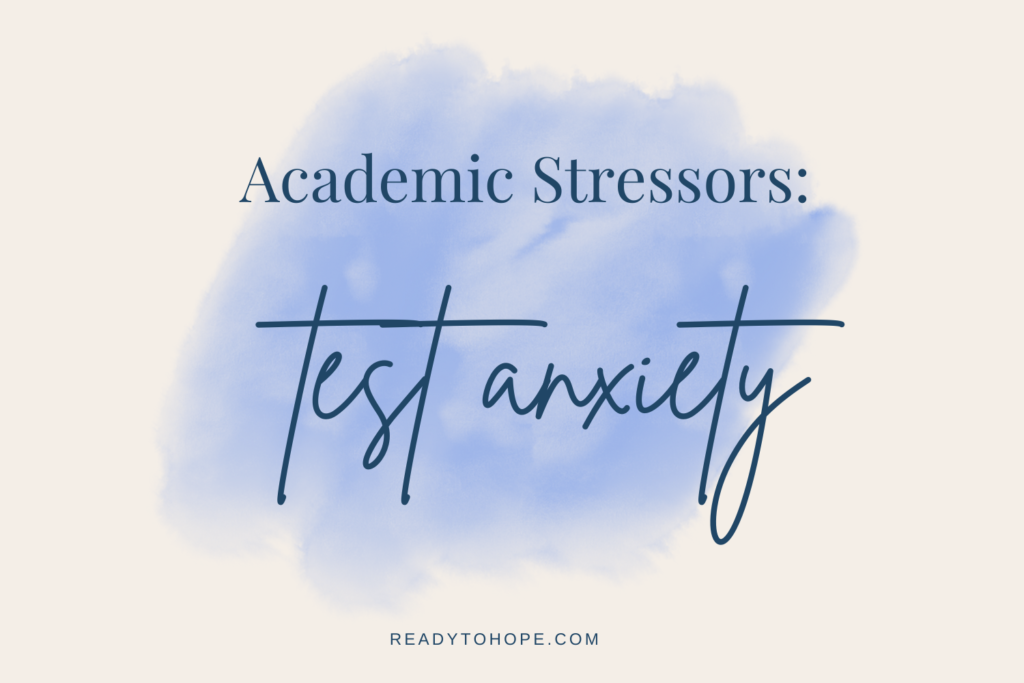
If you feel like you are one who deals with test anxiety, just know that you are not alone! Most people have some level of anxiety when facing important tests, even if they don’t have test anxiety overall. Sometimes it is as simple as what is at stake, right? If you know you need to do well on a test or you might not pass the class, or might not get into the college you’re dreaming of, you will naturally feel more stress!
For our purposes, we will address test anxiety in general, because whether you’re experiencing anxiety over one math test or over the SAT, the symptoms and ways to address them are pretty much the same.
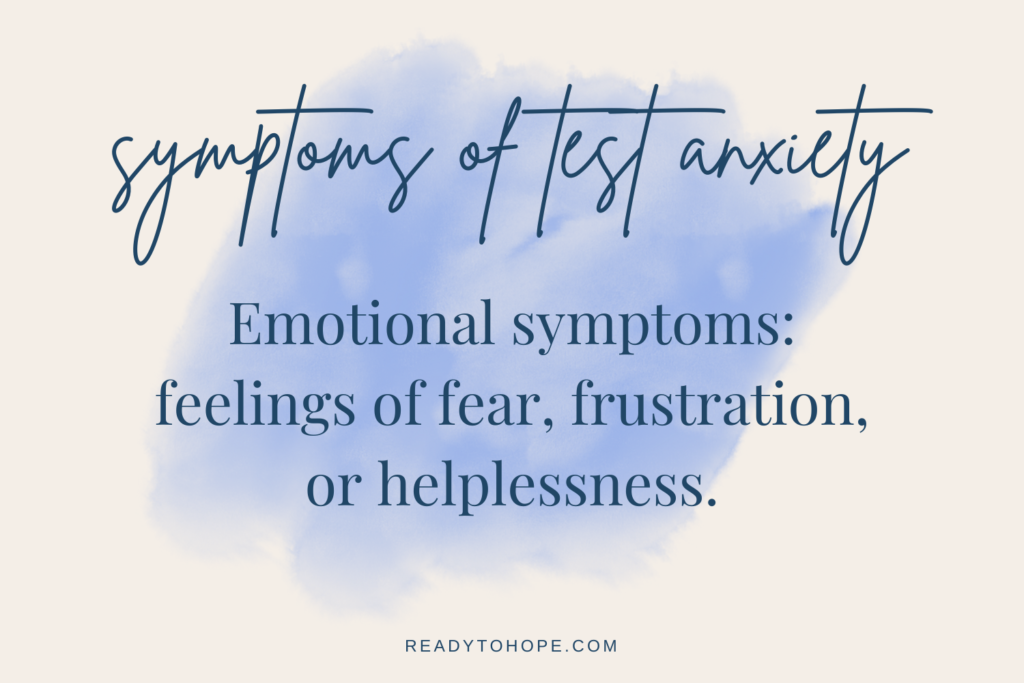
First, what are the symptoms of test anxiety?
The symptoms of test anxiety really look like anxiety in general. So if you’re experiencing any of the following leading up to a test, you are likely dealing with some level of anxiety.
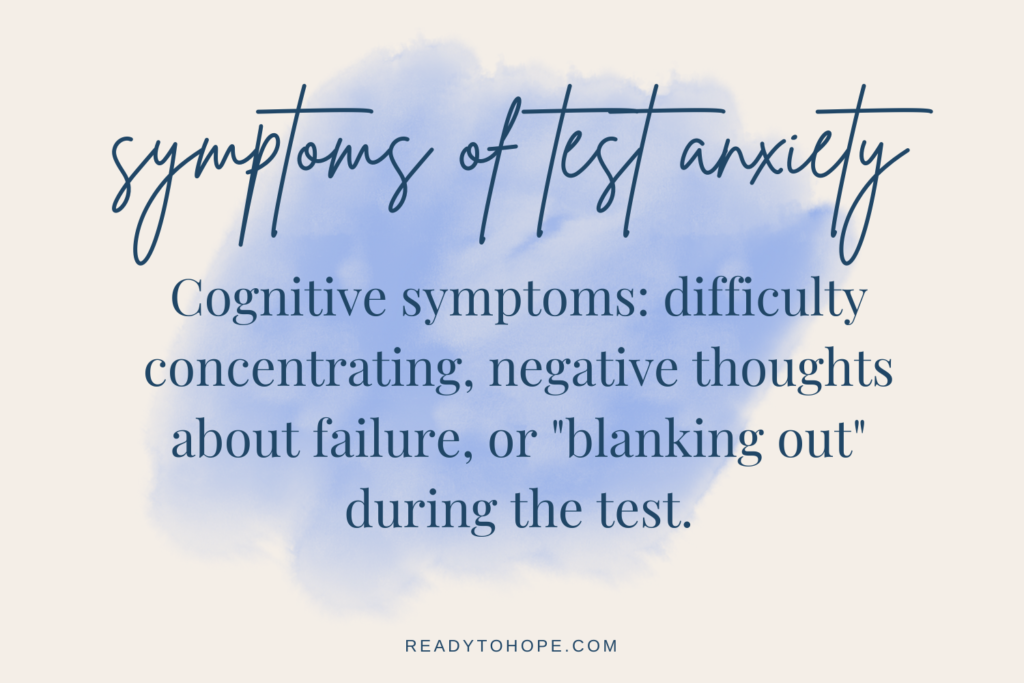
Physical symptoms: sweating, a racing heart, nausea, headaches, or dizziness.
Emotional symptoms: feelings of fear, frustration, or helplessness.
Cognitive symptoms: difficulty concentrating, negative thoughts about failure, or “blanking out” during the test.
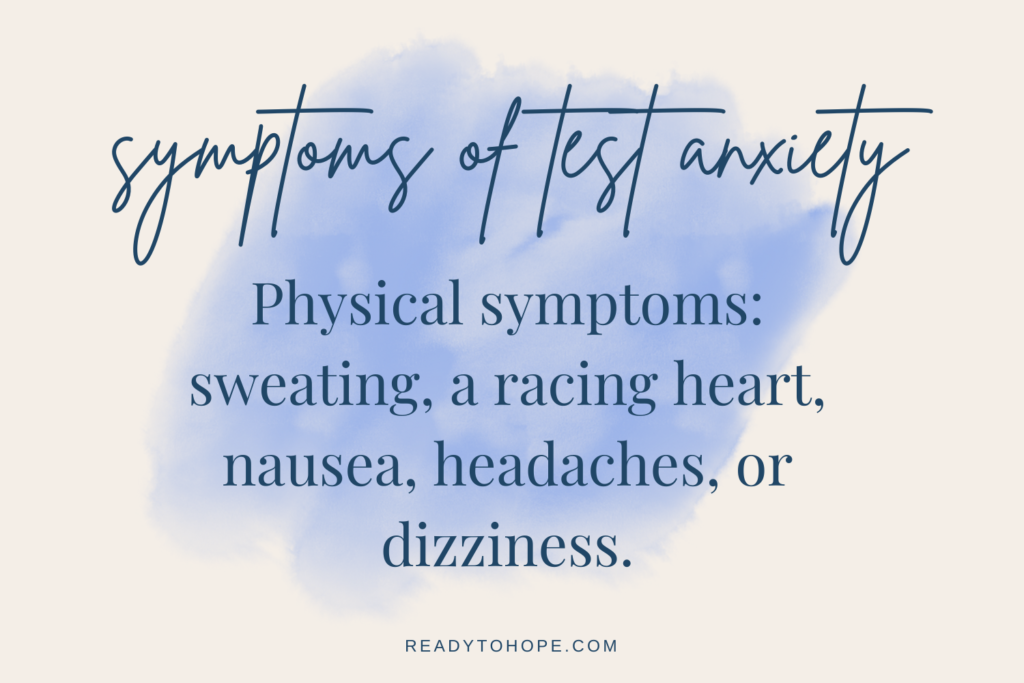
So if you have experienced any combination of these symptoms, you might want to start thinking about strategies to address your test anxiety. The good news is, there are many things you can do!
Be sure you are fully prepared.
It’s completely normal to want to avoid the source of your anxiety, but the more you are able to really spend time getting ready for the test, the more you will actually be able to become comfortable with the materials and gain confidence that you actually know the material.
Do your best to avoid procrastinating and instead, start early.
Break down your study plan into doable blocks of time and content, and begin as early as time allows to start to gain a grasp on the material.
Do what you can to familiarize yourself with the test format.
Whether it’s a professor, a teacher, or the SAT, you should be able to ask about what to expect on the test.
Even if a teacher doesn’t volunteer that information, they are likely to give it to you if you ask- and they might even be impressed that you’re asking!
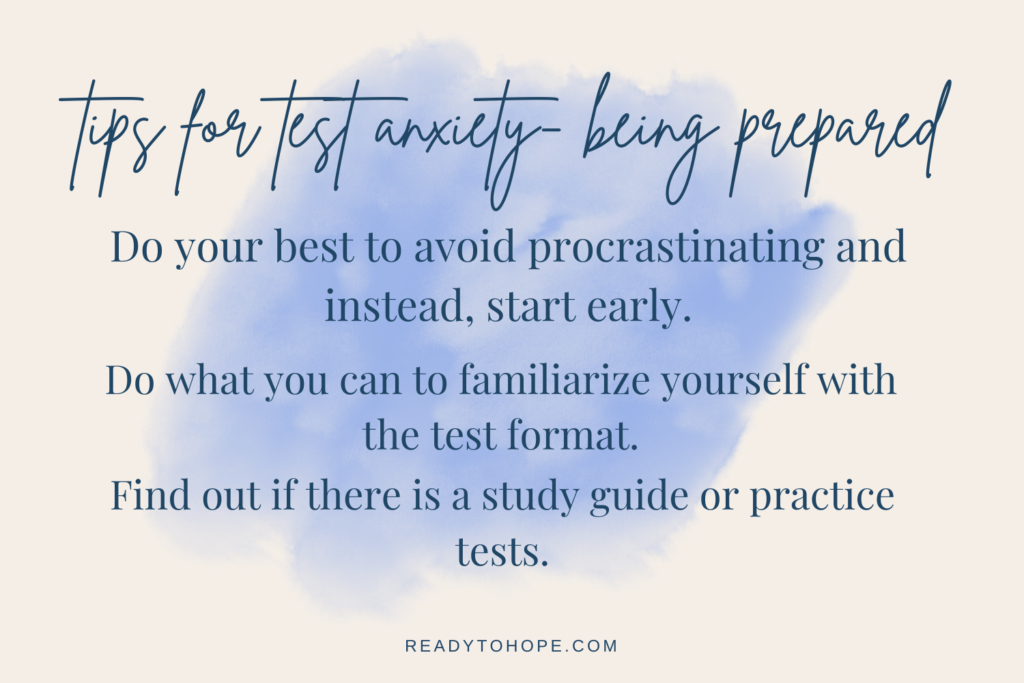
So find out: will the test be multiple choice? Short answer? Essay? How much time will you be given? Approximately how many questions can you expect?
Find out if there is a study guide or practice tests.
Again, this is one of those areas where your teacher or professor may volunteer this information, but if not, don’t hesitate to ask!
And if you can get your hands on a study guide or practice tests, incorporate them into your preparation.
Practice strategies to calm yourself and focus.
If you find that simply studying for the test or thinking about the test makes you anxious, that is a perfect opportunity to begin practicing calming strategies!
You can even practice for a few minutes before you begin a study session, so that your brain begins to rewire with more calm and focused pathways, and associates the materials with being calm and focused.
Breathing Exercises
- You can search online for different breathing exercises but a simple one to remember is box breathing.
- Box breathing is where you breathe in for a count of four, hold for a count of four, exhale for a count of four, and hold for a count of four.
- And if you prefer, simply remember that a longer exhale than inhale is calming. So count as you inhale, and then be mindful that your exhale is longer than your inhale.
Progressive Muscle Relaxation (link)
We did a post on progressive muscle relaxation not too long ago that you can check out here, but it is simply going through each muscle group and tensing it for a few seconds, then releasing that tension. It is often helpful to start at the top of the head and slowly move down your body, tensing your jaw, then your shoulders, then your arms, torso, and so on.
Visualization Exercises
So often, those of us with anxiety have anxiety about being anxious. (If you know you know, right?)
Visualizing yourself being calm and focused and doing well on the test is another way to create calm and focused pathways in your brain.
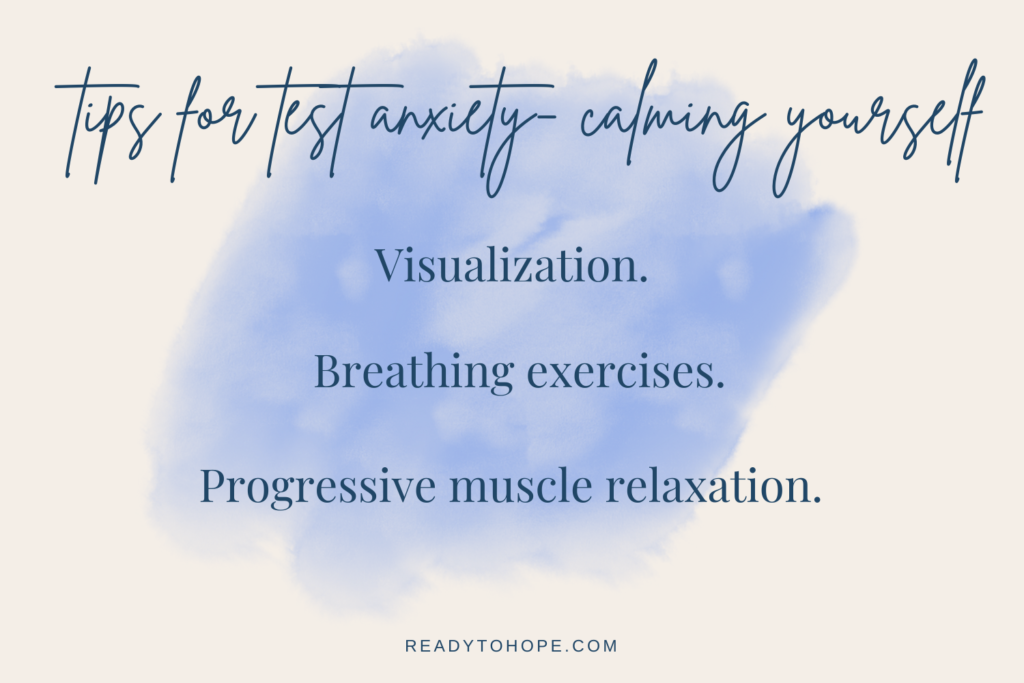
You can close your eyes and imagine walking into the test room, sitting down, seeing the test questions, calmly answering them with confidence, and successfully completing the test in time.
The more you can imagine the details of taking the test, and doing so while staying calm and focused, the more likely your brain will go back to that place when you are actually in the test!
Remember your self-care.
As always: be sure you’re taking care of your overall health. Give yourself the best chance to succeed by getting adequate rest, fueling your body with nutritious foods, hydrating, and getting whatever form of exercise you enjoy.
After the test:
Reflect, but don’t dwell. Take time to go over how you think you did, but know that you can’t go backwards in time. Be proud of your effort, especially the areas you know you did well on, and see the areas where you struggled as room for improvement.

How to recognize when your anxiety is something to seek help for.
If you try all of these tools and still find that your anxiety is so strong that you cannot focus or be successful, it may be time to get some help.
Your school counselor or advisor can help you find a professional to help you address your anxiety. There are so many more tools than we explored here, and ACT therapy can especially be a powerful method to address anxiety. You can find out more about ACT therapy here (LINK)
When it comes to test anxiety, it is important to figure out what works best for you- and as always, it is important to remember you are not the only one dealing with it! The more you can be honest about what you’re experiencing, the more likely you will be to find others you can connect with and relate to- and even share resources and tools!
And as always, Ready to Hope was created to support young adults with anxiety (and sadness, and loneliness, and stress, you get the idea).
Our workshops are a chance to connect with others who just want to take care of their mental wellness, as well as learn from one another and about tools and resources to feel and perform your best in school.
You can stay informed about upcoming events and workshops by joining our email list below!
Or follow along on social for inspiration and encouragement.


Hope to see you soon, but also know that you can always send us a message, too!

